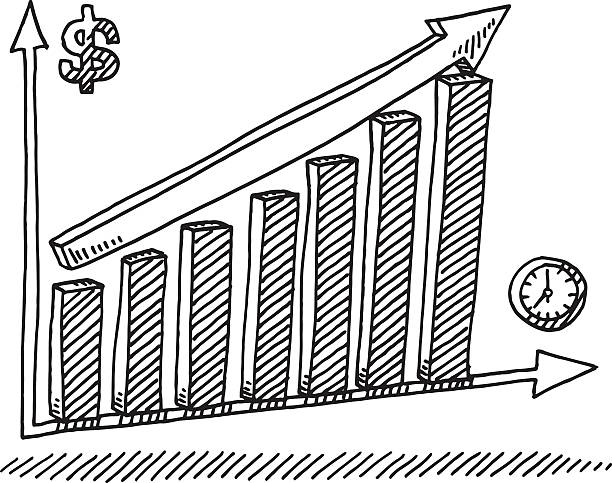Real Estate vs Stocks

As I’ve mentioned before, I’m a bit of a personal finance nerd. I’ve been carefully tracking my spending and investing for many years now. In particular, I find the investing side of personal finance fascinating.
For the last eight years, my wife and I have split our investments roughly 50/50 between broadly diversified index funds and real estate (rental properties).
Earlier this week, I was discussing real estate investing with some friends, and we had a great conversation about why you might even consider investing in real estate in the first place. As I explained my strategy to them, I thought it might make for an interesting blog post (especially if you’re new to the world of investing).
Please note that I’m not an expert, just an enthusiastic hobbyist. Like all things I work on, I like to do a lot of research, experimentation, etc., but don’t take this as financial advice.
Why Invest in Stocks

Before discussing whether real estate or stocks is the better investment, let’s talk about how stocks work. If you don’t understand how to invest in stocks (and what rewards you can expect from them), the comparison between real estate and stocks will be meaningless.
What is a Stock?
Stocks are the simplest form of investment you can make. If you buy one share of Tesla stock for $100, you’re purchasing one tiny sliver of the entire company and are now a part-owner!
Each stock you hold can either earn or lose money, depending on how the company performs. For example, if Tesla doesn’t sell as many vehicles as the prior year, it’s likely that the company will not make as much money and will therefore be worth less than it was a year ago, so the value of the stock might drop. In this case, the one share of Tesla stock you purchased for $100 might only be worth $90 (a 10% drop in value!).
But, stocks can also make you money. If Tesla sells more vehicles than anyone expected, the company might be worth more, and now your one share of Tesla stock might be worth $110 (a 10% gain!). This gain is referred to as appreciation because the value of your stock has appreciated.
In addition to appreciation, you can also make money through dividends. While some companies choose to take any profits they make and reinvest them into the business to make more products, conduct research, etc., some companies take their profits and split them up amongst their shareholders. We call this distribution a dividend. When a dividend is paid, you’ll receive a set amount of money per share as a shareholder. For example, if Tesla issues a 10 cent dividend per share, you’ll receive $0.10 of spending money as the proud owner of one share of Tesla stock!
But here’s the thing, investing in stocks is RISKY. It’s risky because companies make mistakes, and even the most highly respected and valuable companies today can explode overnight and become worthless (Enron, anyone?). Because of this, generally speaking, it’s not advisable to ever buy individual stocks.
Instead, the best way to invest in stocks is by purchasing index funds.
What is an Index Fund?
Index funds are stocks you buy that are essentially collections of other stocks. If you invest in Vanguard’s popular VTSAX index fund, for example, you’re buying a small amount of all publicly traded companies in the US.
This approach is much less risky than buying individual stocks because VTSAX is well-diversified. If any of the thousands of companies in the US goes out of business, it doesn’t matter to you because you only own a very tiny amount of it.
The way index funds work is simple: if the value of the index as a whole does well (the US economy in our example), the value of your index fund rises. If the value of the index as a whole does poorly, the value of your index fund drops. Simple!
How Well Do Index Funds Perform?
Let’s say you invest your money into VTSAX and now own a small part of all US companies. How much money can you expect to make?
While there’s no way to predict the future, what we can do is look at the past. By looking at the average return of the stock market since 1926 (when the first index was created), you can see that the average return of the largest US companies has been ~10% annually (before inflation).
If you were to invest in VTSAX over a long period of time, it’s historically likely that you’ll earn an average of 10% per year. And understanding that the US market averages 10% per year is exciting because if you invest a little bit of money each month into index funds, you’ll become quite wealthy.
If you plug some numbers into a compound interest calculator, you’ll see what I mean.
For example, if you invest $1,000 per month into index funds for 30 years, you’ll end up with $2,171,321.10. If you start working at 22, then by the time you’re 52, you’ll have over two million dollars: not bad!
How Much Money Do I Need to Retire if I Invest in Index Funds?

Now that you know how index funds work and how much they historically earn, you might be wondering: how much money do I need to invest in index funds before I can retire?
As it turns out, there’s a simple answer to this question, but before I give you the answer, let’s talk about how this works.
Imagine you have one million dollars invested in index funds that earn an average of 10% yearly. You could theoretically sell 10% of your index funds each year and never run out of money in this scenario. Or at least, this makes sense at first glance.
Unfortunately, while it’s true that the market has returned a historical average of 10% yearly, this is an average, and actual yearly returns vary significantly by year. For example, you might be up 30% one year down 40% the next.
This unpredictability year-over-year makes it difficult to safely withdraw money each year without running out of money due to sequence of return risk.
Essentially, while it’s likely that you’ll earn 10% per year on average if you invest in a US index fund, you will likely run out of money if you sell 10% of your portfolio per year due to fluctuating returns each year.
Luckily, a lot of research has been done on this topic, and the general consensus is that if you only withdraw 4% of your investments per year, you’ll have enough money to last you a long time (a 30-year retirement). This is known as the 4% rule and is the gold standard for retirement planning.
Using the 4% rule as a baseline, you can quickly determine how much money you need to invest to retire with your desired spending.
For example, let’s say you want to retire and live off $100k per year. In this case, $100k is 4% of $2.5m, so you’ll need at least $2.5m invested to retire safely.
PRO TIP: You can easily calculate how much you need invested to retire if you simply take your desired yearly spend and multiply it by 25. For example, $40k * 25 = $1m, $100k * 25 = $2.5m, etc.
By only withdrawing 4% of your total portfolio per year, it’s historically likely that you’ll never run out of money over 30 years. Need a longer retirement? You may want to aim for a 3.5% withdrawal rate (or lower).
Should I Invest in Index Funds?

I’m a big fan of index fund investing, which is why my wife and I put 50% of our money into index funds.
- Index funds are simple to purchase and sell (you can do it instantly using an investment broker like Vanguard) in seconds
- Index funds have an excellent historical track record (10% average yearly returns is fantastic!)
- Index funds are often tax-advantaged (they are easy to purchase through a company 401k plan, IRA, or other tax-sheltered accounts)
Why Invest in Real Estate?

Now that we’ve discussed index funds, how they work, what returns you can expect if you invest in index funds, and how much money you need to invest to retire using index funds, we can finally talk about real estate.
What Qualifies as a Real Estate Investment?

Like stocks and other types of securities, there are multiple ways to invest in real estate. I’m going to cover the most basic form of real estate investing here, but know that there are many other ways to invest in real estate that I won’t cover today due to how complex it can become.
At a basic level, investing in real estate means you’re purchasing a property: a house, condo, apartment building, piece of land, commercial building, etc.
How Do Real Estate Investors Make Money?

There are many ways to make money through investing in real estate. Again, I’m only going to cover the most straightforward ways here due to the topic’s complexities.
Let’s say you own an investment property. The typical ways you might make money from this investment are:
- Renting the property out for a profit
- Owning the property as its value rises over time. For example, if you purchased a house ten years ago for $100k worth $200k today, you’ve essentially “earned” $100k in profit, even if you haven’t yet sold the property. This is called appreciation.
Simple, right?
What’s One Major Difference Between Index Funds and Real Estate?

One of the most significant differences between real estate investing and index fund investing is leverage.
When you invest in an index fund like VTSAX, you’re buying a little bit of the index using your own money directly. This means if you purchase $100k of index funds and earn 10% on your money, you’ll have $110k of investments.
On the other hand, real estate is often purchased using leverage (aka: bank loans). It’s common to buy an investment property and only put 20-25% of your own money into the investment while seeking a mortgage from a bank to cover the remaining 75-80%.
The benefit of using leverage is that you can stretch your money further. For example, let’s say you have $100k to invest. You could put this $100k into VTSAX or purchase one property worth $500k (20% down on a $500k property means you only need $100k as a down payment).
Imagine these two scenarios:
- Scenario 1: You invest $100k in VTSAX and earn precisely 10% per year
- Scenario 2: You put a $100k down payment on a $500k property that you rent out for a profit of $500 per month after expenses (we call this cash flow), and this property appreciates at a rate of 6% per year. Also, assume that you can secure a 30-year fixed-rate loan for the remaining $400k at a 4.5% interest rate.
After ten years, in Scenario 1, you’ll have $259,374.25. Not bad! That’s a total profit of $159,374.25.
But what will you have after ten years in Scenario 2?
In Scenario 2, you’ll have:
- A property whose value has increased from $500k to $895,423.85 (an increase of $395,423.85)
- Cash flow of $60k
- A total remaining mortgage balance of $320,357.74 (a decrease of $79,642.26)
If you add these benefits up, in Scenario 2, you’ve essentially ballooned your original $100k investment into a total gain of $535,066.11. That’s three times the gain you would have gotten had you simply invested your $100k into VTSAX!
There are a lot of variables at play here, but you get the general idea. While investing in index funds is profitable and straightforward, if you’re willing to learn the business and put in the work, you can often make higher returns through real estate investing over the long haul.
How Difficult is Real Estate Investing?

Real estate investing is complicated. It requires a lot of knowledge, effort, and ongoing work to run a successful real estate investing operation. Among other things, you need to know:
- How much a potential investment property will rent for
- How much a potential investment property will appreciate
- What sort of mortgage rates you can secure
- What your expenses will be each month
- How much property taxes will cost
- How much insurance will cost
- Etc.
All of the items above are variables that can dramatically impact whether or not a particular property is a good or bad investment. And this doesn’t even begin to account for the other things you need to do on an ongoing basis: manage the property, manage your accounts/taxes, follow all relevant laws, etc.
In short: investing in real estate is not simple and requires a lot of knowledge to do successfully. But, if you’re interested in running a real estate business, it can be a fun and profitable venture.
How We Invest in Real Estate

As I mentioned earlier, my wife and I split our investable assets 50/50 between index funds and real estate. The reason we do this is twofold:
- It’s easy (and safe) for us to invest money in index funds
- It’s hard for us to invest in real estate (it took a lot of time and research to get started), but we generally earn greater returns on our real estate investments than we do on our index investments
Our real-estate investing criteria are pretty simple.
- We only purchase residential real estate that we rent out to long-term tenants. We do this because it’s relatively low-risk, low-maintenance, and straightforward.
- We only purchase rental properties that generate a cash-on-cash return of 8% or greater. For example, if we buy a $200k property with a $40k downpayment, we need to earn $3,200 per year in profit ($3,200 is 8% of $40k) for the deal to make sense.
- We don’t factor appreciation into our investment calculations as we plan to hold these rental properties long-term and never sell them. The rising value of the rental properties we acquire isn’t as beneficial to us as is the cash flow.
- Over time, the properties pay themselves off, and once they’re free and clear, we’ll have a much larger monthly profit.
Why did we choose an 8% cash-on-cash return as our target metric for rental property purchases? In short, it’s because that 8% is roughly twice the safe withdrawal rate of our index funds.
I figured early on that if I was going to invest a ton of time and energy into learning about real estate investing, hunting down opportunities, etc., I’d have to make it worthwhile by at least doubling the safe withdrawal rate of our index funds. Otherwise, I could simply invest our money into VTSAX and never think about taking on extra work or risk.
Today, my wife and I own a small portfolio of single-family homes that we rent out to long-term tenants, each earning roughly 8% cash-on-cash return yearly.
Should I Invest in Stocks or Real Estate?

As you’ve seen by now, there isn’t a clear answer here. To sum it up:
-
If you’re looking for the most straightforward path to retirement, invest your money in well-diversified index funds like VTSAX. Index funds will allow you to retire with a 4% safe withdrawal rate and slowly build your wealth over time.
-
If you’re interested in real estate and are willing to put in the time and effort to learn about it, you can potentially make greater returns, but it’s a lot of work.
-
Or, if you’re like me, why not both? This way, you get the best of both worlds: a bit of simple, reliable index investments and a bit of riskier, more complex, and more rewarding real estate investments.
PS: If you read this far, you might want to follow me on Bluesky or GitHub and subscribe via RSS or email below (I'll email you new articles when I publish them).